In the world of sales recruitment, businesses are constantly trying to find the candidates that are most likely to successfully close sales and outperform their competitors.
Unfortunately, many companies find out too late that their current sales hiring methods fall short when it comes to finding sales candidates who can really perform well in their sales environment.
Some companies like to interview and test for cold call reluctance. They theorize that if a person is shy about making calls, he or she should not be selling for a living.
However sales is about more than just cold calling, so this conclusion may be too simple to be valid.
Getting to the Bottom of Cold Calling Reluctance
If your company utilizes a cold calling test as part of the hiring process, then you have to take the results one step beyond identifying reluctance. It is important to also understand why a candidate is reluctant to make cold calls. Unless a company is solely focused on cold calling, it may be time to consider finding a new way of assessing salespeople to determine their qualifications.
Why Cold Call Testing May Fail

The main result often provided by a cold call test is that the sales candidate has some degree of comfort or discomfort with over-the-phone interactions. These tests do not provide a complete picture of the candidate, and may lead companies to erroneously pass over individuals who have every trait needed to be a successful asset to a sales team.
Here are two reasons why cold calling test results may not be enough:
1. Reluctance can be positive.
Cold calling sales professionals who are not reluctant to call strangers on the phone may come across as detached or pushy. They may, in fact, fail as salespeople because they are not sensitive or personable enough.
In some cases, reluctance to traditional cold calling may be the very element that makes a candidate successful when interacting over the phone.
These salespeople may put themselves in the customer’s shoes and understand how frustrating a traditional sales call can be. These salespeople may then stray from the normal phone script or use other non-traditional tactics to convey their message. The customer on the receiving end of the call can often relate to these callers on a more personal level, creating a meaningful and successful interaction.
Many people mistakenly believe that sales is about over-the-top confidence and pushiness. When in reality, sales professionals only need to be engaging. They need to have a resilient personality type that can handle rejection while still interacting on a meaningful level with potential customers. A cold call test focused solely on reluctance does not explore any of the deeper motivating factors of a sales candidate.
2. Cold calling may not be the most effective closing method for some successful salespeople.
Another reason that a cold calling assessment may be invalid is because high-Drive sales candidates often focus on approaching sales from the particular method that has proven most successful for them in the past.
High-Drive salespeople are most interested in spending their time on things that will help them achieve their goals.
For example, a running back in the NFL is always searching for ways to improve his diet and exercise routine to maximize his ability to run fast, elude tacklers and endure. His fellow teammate, the lineman, has a whole different agenda – constantly trying to gain, or at least maintain, great weight and strength, learning blocking techniques and concentrating on the power he can generate over short bursts at the line.
If either of these athletes was asked to spend time—or from their perspective, waste time—on the others’ routines, which would not help them reach their goals, they would surely protest, if they even participated at all.
High-Drive salespeople are the same way. If cold calling will really help them sell as well as other techniques, they will pursue it without question.

But, cold calling does not work for every personality type or in every scenario.
If a salesperson has figured out that cold calling does not produce the results he is seeking, and that his time may be better spent on the road visiting prospects in-person, this is not the same as cold call reluctance.
The point is that we need to be careful when choosing what we test for in the sales hiring process. A company that heavily relies on cold calling may benefit from some form of a cold calling test. However, more often than not, there are other effective ways of assessing a salesperson’s strengths and weaknesses. A focused salesperson assessment may be better at predicting how likely each candidate is to succeed within your company over time.
Choosing the Right Sales Test for Results
When it comes to sales, most companies prefer to expand, rather than limit, their horizons. High-Drive sales candidates who are given freedom in their interactions have a much better chance of developing and keeping relationship with customers than individuals who constantly perform one action in an isolated setting (i.e. cold calling).
Most companies benefit by finding well-rounded sales candidates who are more interested in pursuing a larger company goal, like building long-term customers, than completing a general task, such as making 100 calls per day.
By looking at fundamental building blocks of a salesperson’s personality, such as Drive, companies are able to assess a candidate for the personality traits necessary to succeed in any sales setting.
High-Drive individuals exhibit three defining traits – Need for Achievement, Competitiveness and Optimism.
Identifying these traits is key to recruiting and hiring candidates that are highly motivated, resilient and have a higher potential to reach or exceed sales goals on a sustained basis. High-Drive salespeople will run circles around those who have only been tested for specific skills like cold calling because they think creatively and are focused on results rather than processes.
Developing a Culture of Success
Now that you know how to identify success in potential candidates, it is important to continue the exercise by focusing on the people, not the processes.

When you hire qualified candidates, a traditional segmented approach to sales may not work anymore. You may need to change your approach to highlight the unique skill sets of your high-Drive salespeople.
Focus on allowing your team members to explore different ways to connect with customers.
Over time, you will find that your sales numbers are increasing and that your high-performing salespeople are happy in their work environment. It is a win-win situation.
Next time you go through a round of hiring, consider using a sales assessment test focused on Drive to ensure you are finding those high-producing salespeople who will stop at nothing to reach their goals and in turn grow your business.
 Account Login
Account Login







